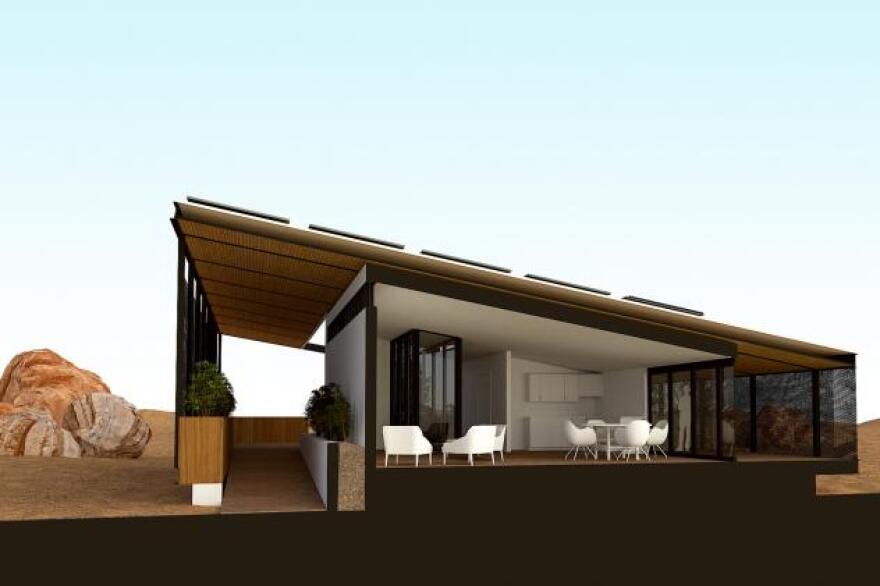In 2013, UNLV sent 60 students and a pre-fab solar house to Southern California for the Solar Decathlon. The challenge was to build a sustainable solar home.
The UNLV students came in second place – just five points behind Vienna University of Technology in Austria - with a 750-square-foot vacation home for desert landscapes. That home can be seen today at the Springs Preserve.
After skipping the 2015 competition, UNLV was again chosen for the 2017 Solar Decathlon. The group of students and advisors has given themselves a bigger challenge – the home will not only be sustainable and solar powered, but will cater to people who have limited mobility – like those who are aging or those with physical disabilities.
Dave James is an engineering professor and principal faculty investigator for the project.
He came up with the idea of designing the house for aging in place. James told KNPR's State of Nevada he knew from dealing with his elderly parents the difficulties of living in a home that wasn't designed for limited abilities.
He also wanted to stand out from the competitors, which were mostly designed for first-time homeowners.
“We had amazing response to this idea," James said.
The month-long competition takes place in October of 2017, but students are already working on the project, and are recruiting other students from across disciplines.
James said the team will need students from "all disciplines across the university," from writers to health sciences and even video production.
The teams have to cook a meal, so they need culinary students and advisers. They have to build the home to be taken apart and put back up again in the competition location, so they need engineers who can come up with the most efficient design. They have to make their home easy to use for people with limited mobility. UNLV just happens to offer a masters program in architectural health care.
Nasko Balaktchiev is the team project manager. He said working with students from other disciplines is closer to what happens in real life.
"One of the best things about this competition is that it helps students exit their comfort zone," he said, "And work with students that they normally wouldn't work with in different fields just like they would in real world but not in the normal university environment."
Besides looking for students to work with, the team is looking for donors to help with the estimated $1 million it will take to build the home, transport it to the competition and pay for the students room and board while at the month-long competition.
Alexia Chen is an advisor for this year's team. She was the team leader for the 2013 team that lost by just a hair.
She said they have learned from the mistakes made in 2013. She said they understand the scoring process better and are more prepared for this competition.
“We’ve learned so much during the entire process,” she said.
Chen is also bringing her real-world experience as a designer for a local architecture firm to the process.
Dave James, engineering professor and principal faculty investigator, UNLV; Alexia Chen, team leader 2013 Solar Decathlon competition and current advisor; Nasko Balaktchiev, architecture student and team project manager









